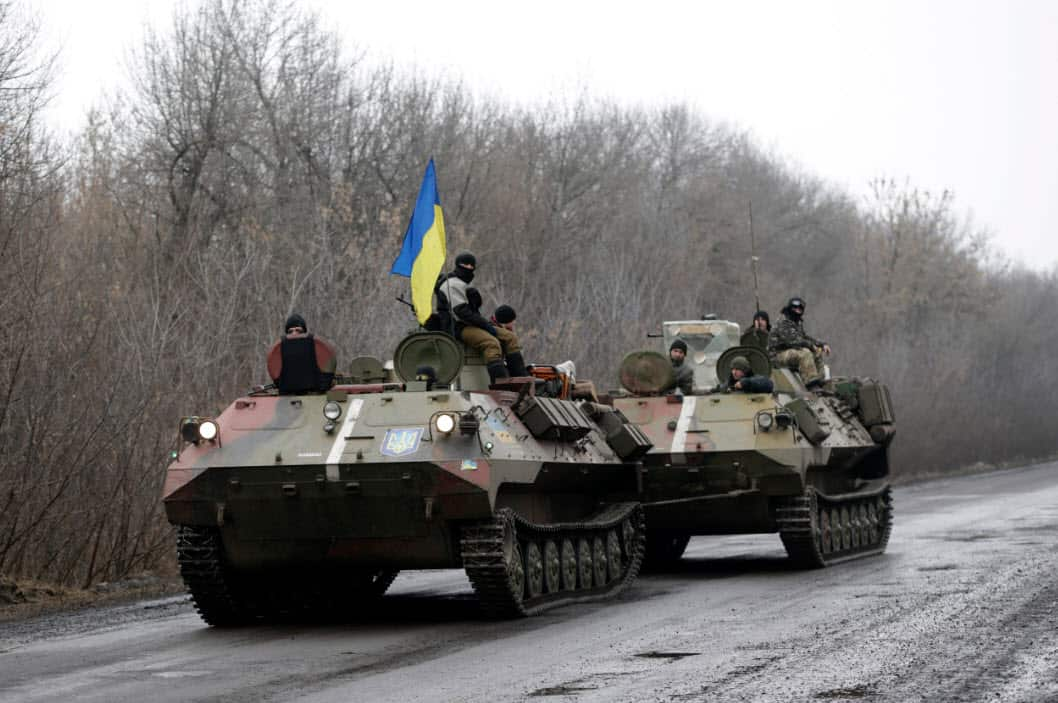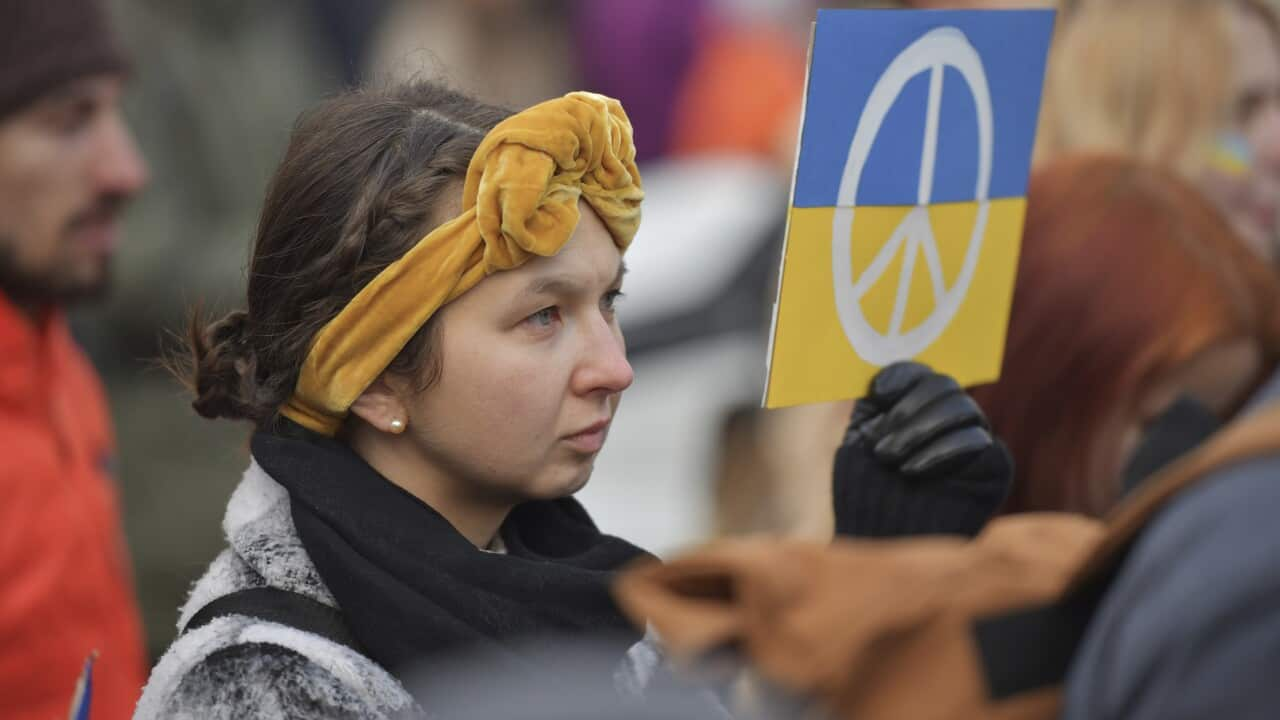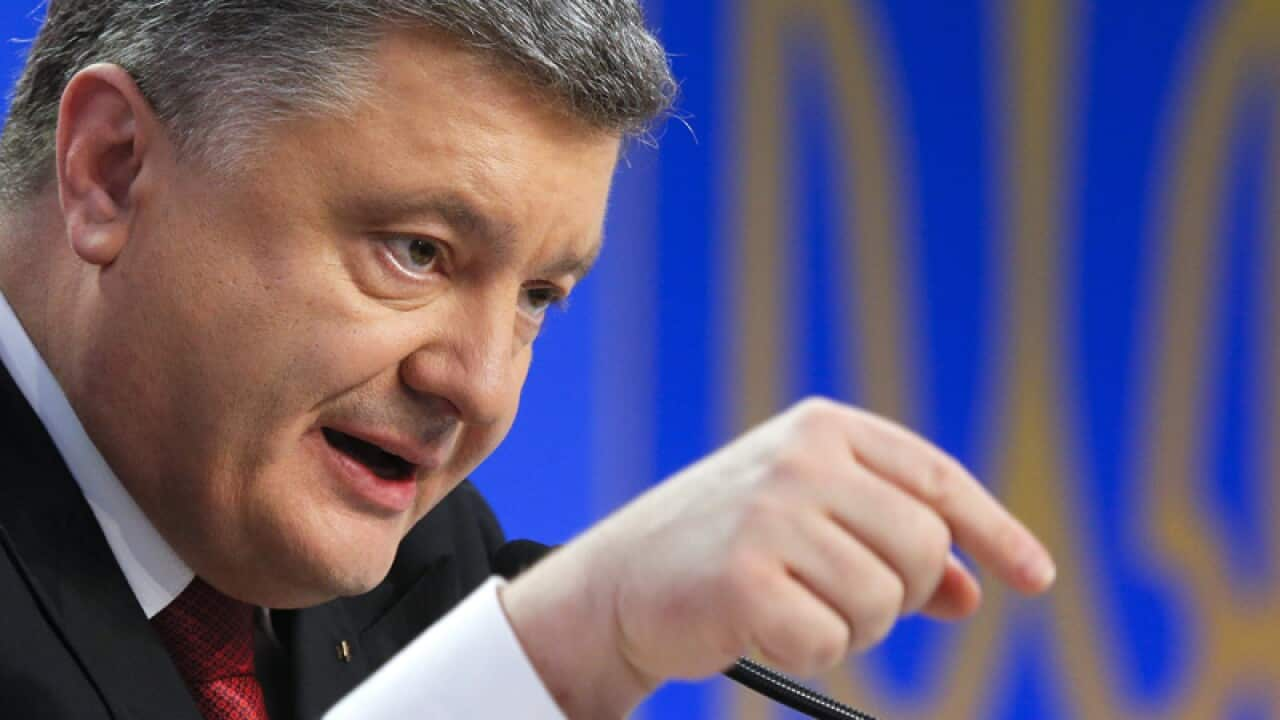Global fears over the Ukraine crisis have intensified, even as explosions and gunfire around Kyiv subsided overnight, as Russia's military advances were slowed by an outgunned but determined resistance.
The lull came after President Vladimir Putin dramatically escalated east-west tensions by ordering Russia's nuclear forces put on high alert.
Citing "aggressive statements" by NATO and tough financial sanctions, Mr Putin issued a directive to increase the readiness of Russia's nuclear weapons, raising fears the invasion of Ukraine could lead to nuclear war, whether by design or mistake.
His directive came as Russian forces encountered strong opposition from Ukraine defenders. US officials say they believe the invasion has been more difficult than the Kremlin envisioned, though that could change as Moscow adapts.
The conflict - seemingly more quiet overnight than in past nights - could evolve significantly if Russia gets military help from neighbouring Belarus, which is expected to send troops into Ukraine as soon as Monday, according to a senior American intelligence official.
The official said that whether Belarus enters the war depends on Ukraine-Russia talks set to happen in the coming days.
Ukrainian President Volodymyr Zelenskyy's office announced plans for a meeting with a Russian delegation at an unspecified location on the Belarusian border.
Amid the mounting pressure, Western nations said they would tighten sanctions and buy and deliver weapons for Ukraine, including Stinger missiles for shooting down helicopters and other aircraft. European countries will also supply fighter jets to Ukraine, EU foreign policy chief Josep Borrell said.
The fast-moving developments came as scattered fighting was reported in Kyiv. Battles also broke out in Ukraine's second-largest city, Kharkiv, and strategic ports in the country's south came under assault from Russian forces.
With Russian troops closing in around Kyiv, a city of almost three million, the mayor of the capital expressed doubt that civilians could be evacuated. Authorities have been handing out weapons to anyone willing to defend the city. Ukraine is also releasing prisoners with military experience who want to fight and training people to make firebombs.
Meanwhile, the top official in the EU outlined plans by the 27-nation bloc to close its airspace to Russian airlines and buy weapons for Ukraine. The EU will also ban some pro-Kremlin media outlets, said European Commission President Ursula von der Leyen.
The US also stepped up the flow of weapons to Ukraine, announcing it will send Stinger missiles as part of a package approved by the White House on Friday. Germany likewise plans to send 500 Stingers and other military supplies.

A Ukranian armored vehicle is towed on the road towards the town of Artemivsk, Ukraine (AAP)
The practical meaning of Mr Putin's nuclear order was not immediately clear. Russia and the United States typically have land and submarine-based nuclear forces that are on alert and prepared for combat at all times, but nuclear-capable bombers and other aircraft are not.
The number of casualties from Europe's largest land conflict since World War II remained unclear amid the confusion.
Ukraine's Interior Ministry said Sunday that 352 Ukrainian civilians have been killed, including 14 children. It said an additional 1,684 people, including 116 children, have been wounded.
A Russian Defense Ministry spokesman gave no figures on Russia's dead and wounded but said his country's losses were "many times" lower than Ukraine's.
Along with military assistance, the US, European Union and Britain also agreed to block selected Russian banks from the SWIFT system, which moves money around thousands of banks and other financial institutions worldwide.
Russia's economy has taken a pounding since the invasion, with the rouble plunging and the central bank calling for calm to avoid bank runs.
READ MORE

Ukraine brings back conscription
Ukrainian residents sheltering for safety
Meanwhile, residents in Kyiv are determined to repel a Russian attack against the Ukrainian city, despite saboteurs marking up targets.
Kyiv resident Anastasia Russo is sheltering in her bathroom as Russian shelling of the city continues - knowing buildings on her street have been marked as targets.
"There is no bomb shelter around this house so my only hope is the bathroom is strong enough to protect me," she told AAP.
The 25-year-old has seen saboteurs spray painting crosses and circles on her street as well as roads and buildings across the city to guide aerial attacks.
"Many people are walking around the streets, even children, looking for these marks... we are doing everything we can to cover them," she said.
Kyiv residents have been advised to report the targets to municipal security, paint them or cover them with dirt, and even use drones to check their buildings.
"Residents of high-rise buildings that have access to the roof, please urgently check the roof for signs," local government authorities said on social media.
"Tags on wood can be either painted or [covered] with reflective tape. The paint must be smeared with dirt, knocked down or covered with some objects," another warning said.
From a Russian-speaking family, Ms Russo has also been preparing sandbags and making fuses for Molotov cocktails, as well as fighting Russian disinformation on social media.
"Russia says they do not attack civilians - that's a lie," she said.
"Our religion is freedom and dignity, that's why I believe we will win."
Share


